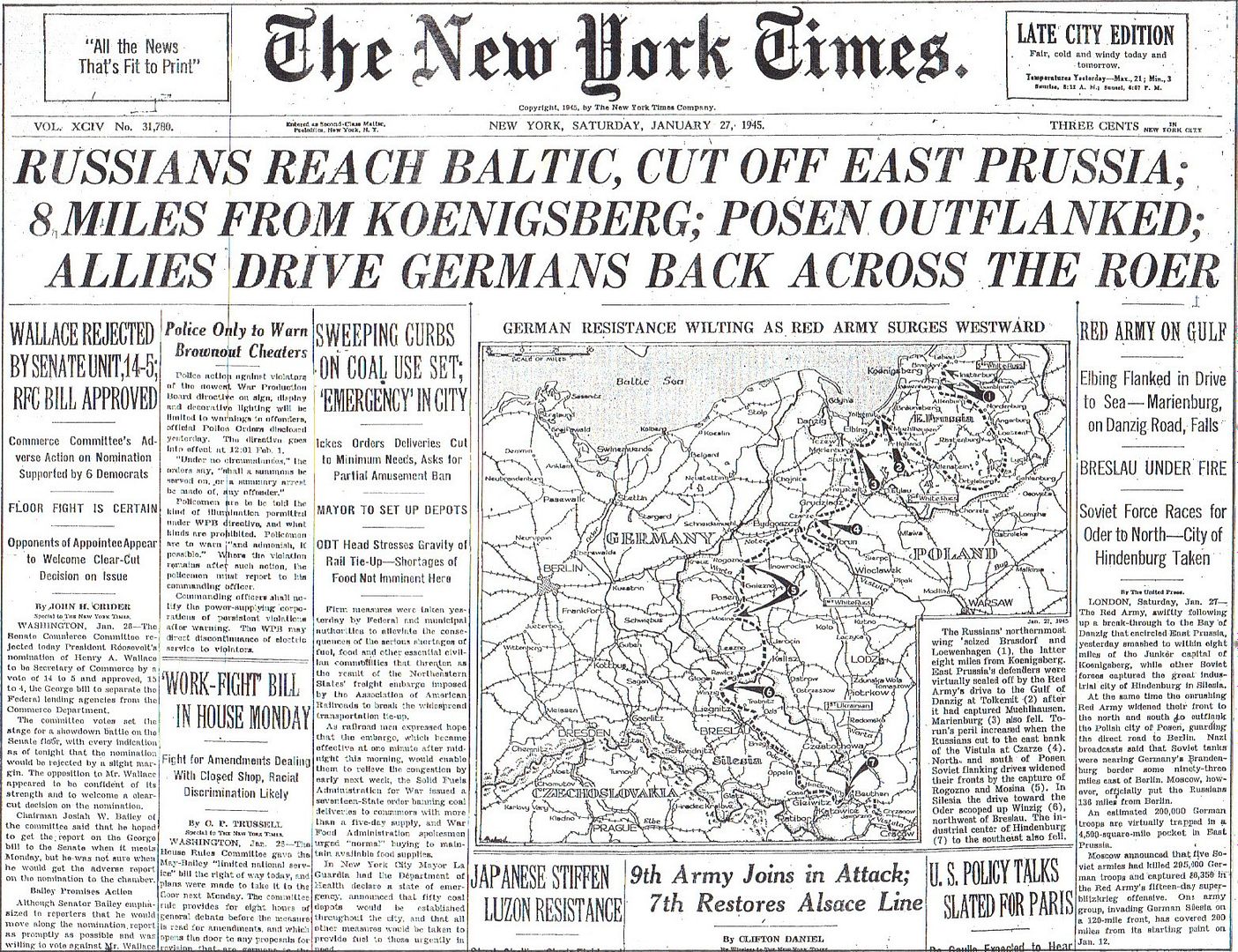
Posted on 01/27/2015 4:23:21 AM PST by Homer_J_Simpson

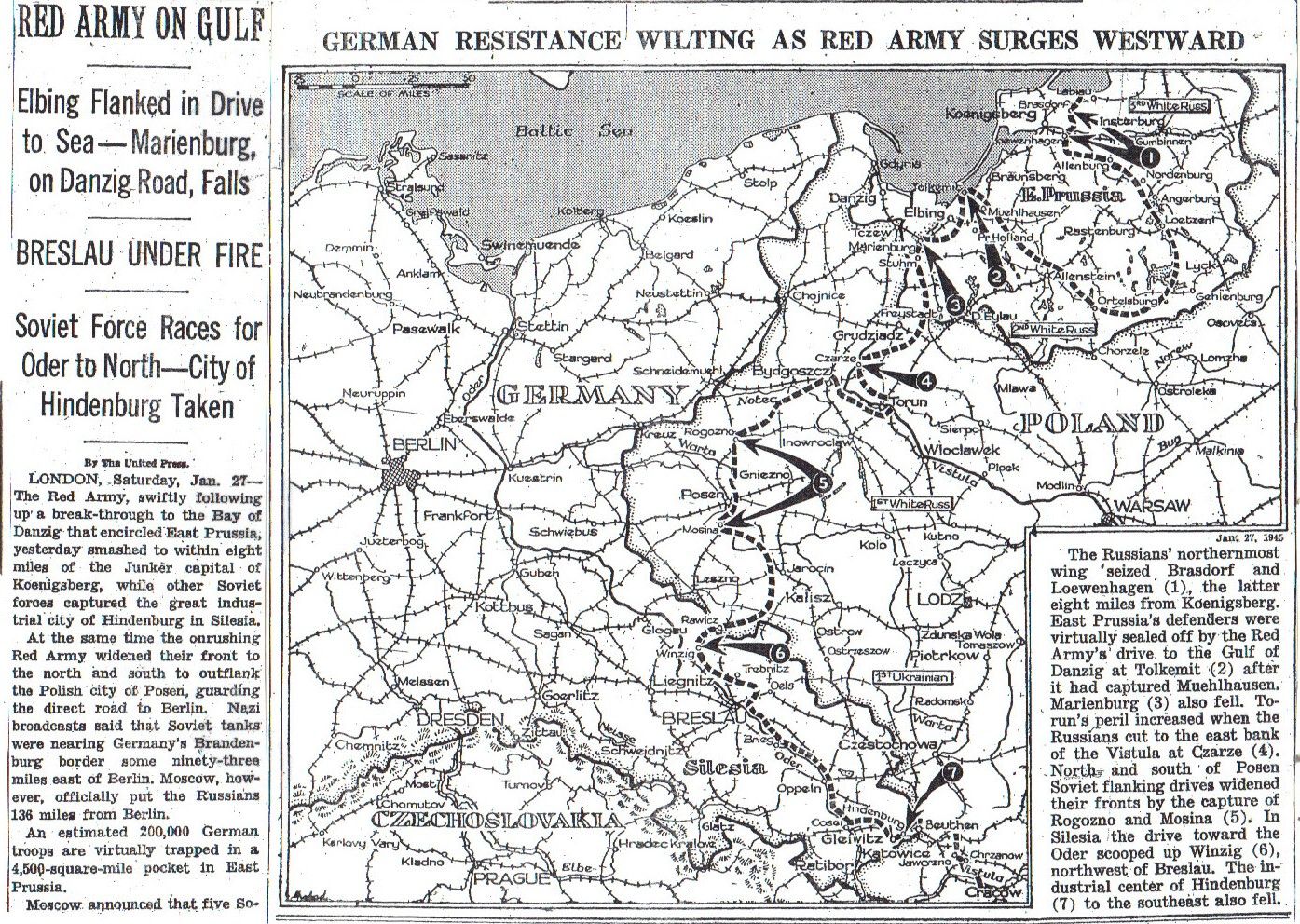
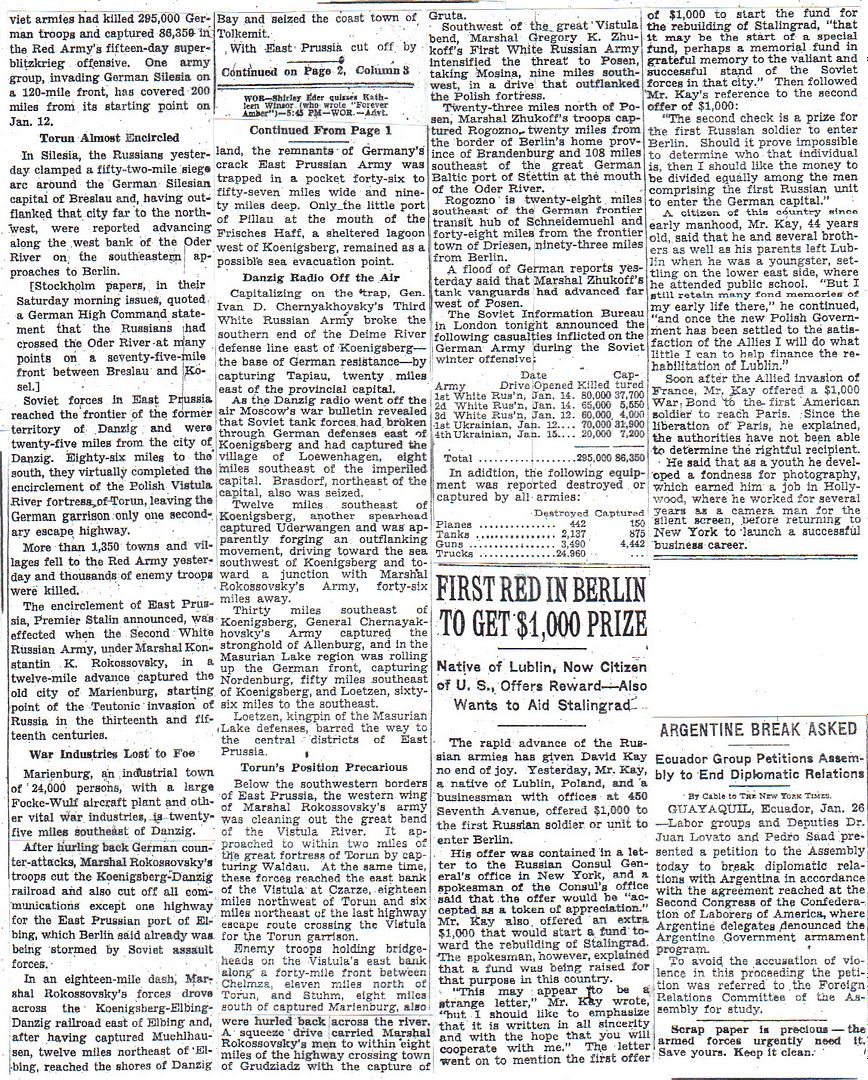
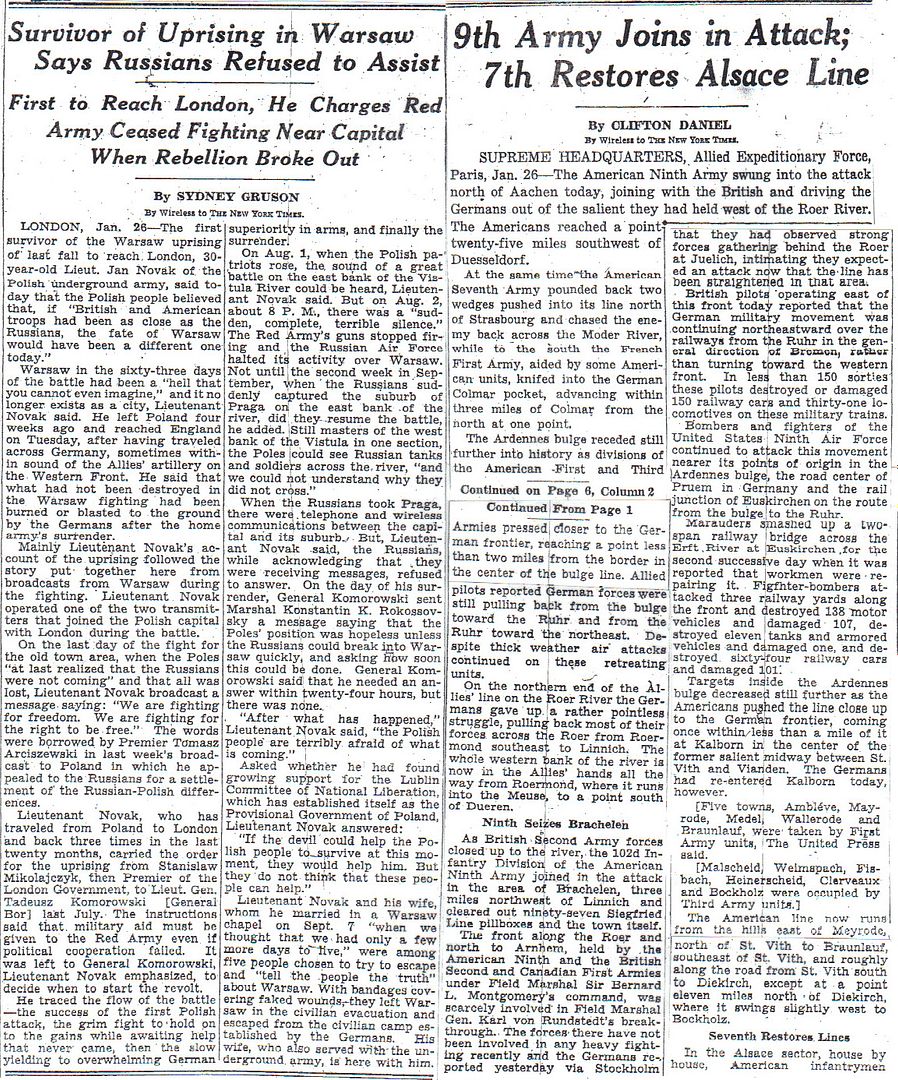
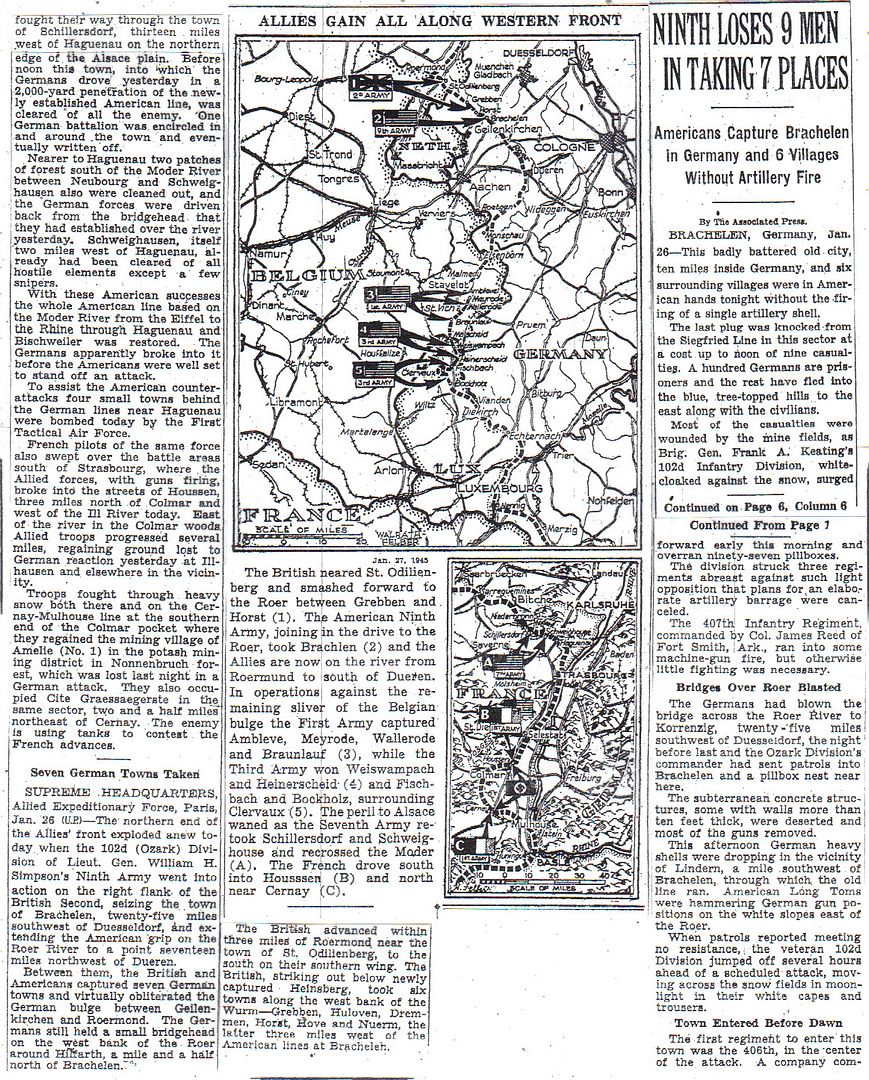
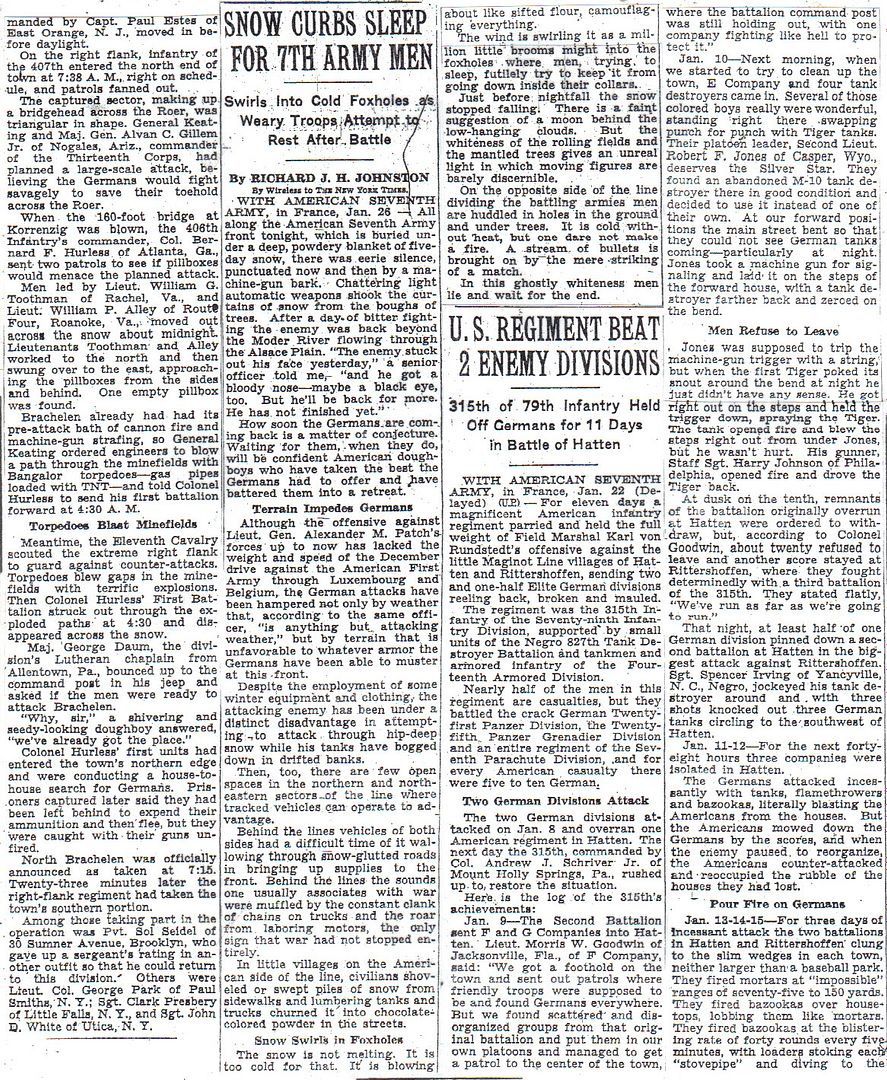
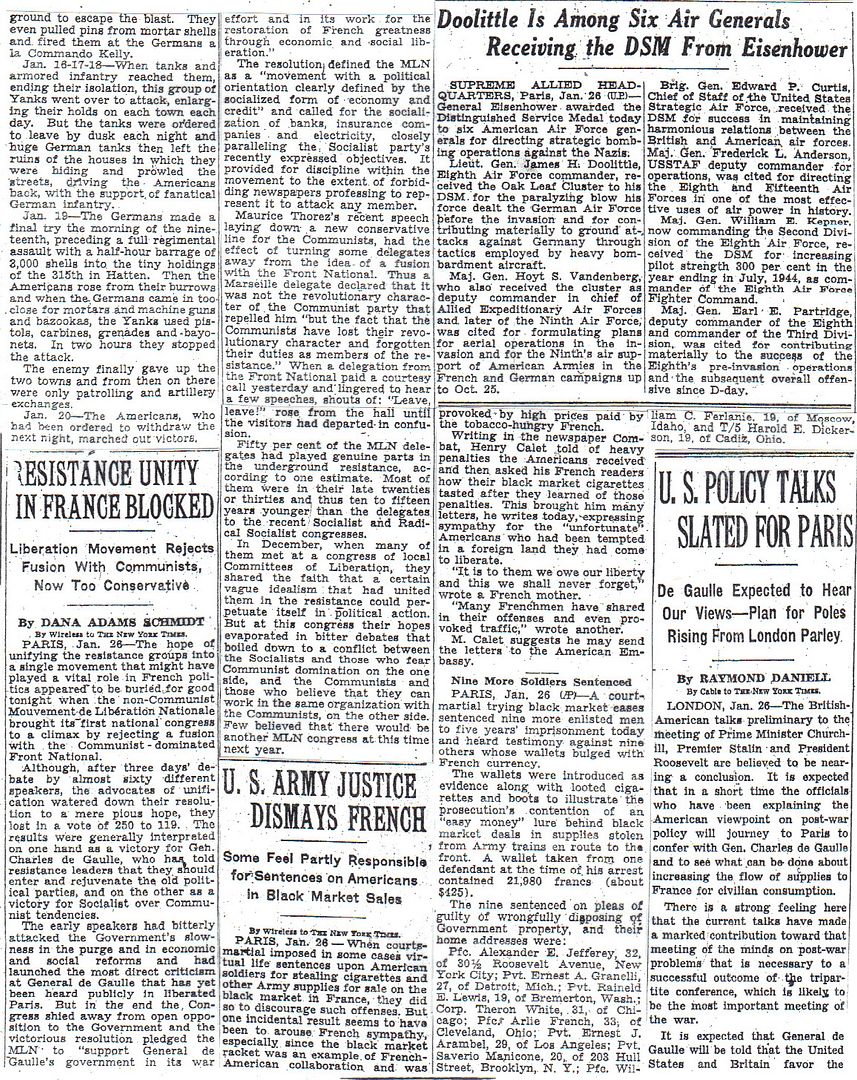
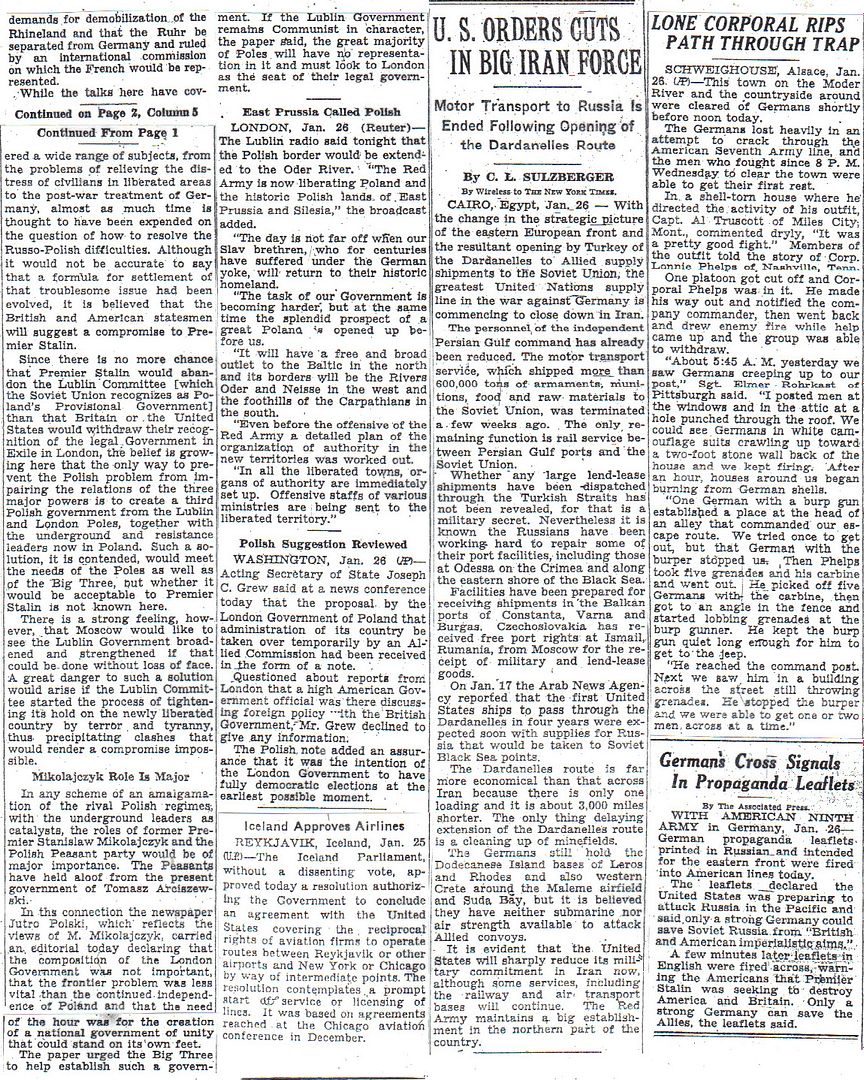
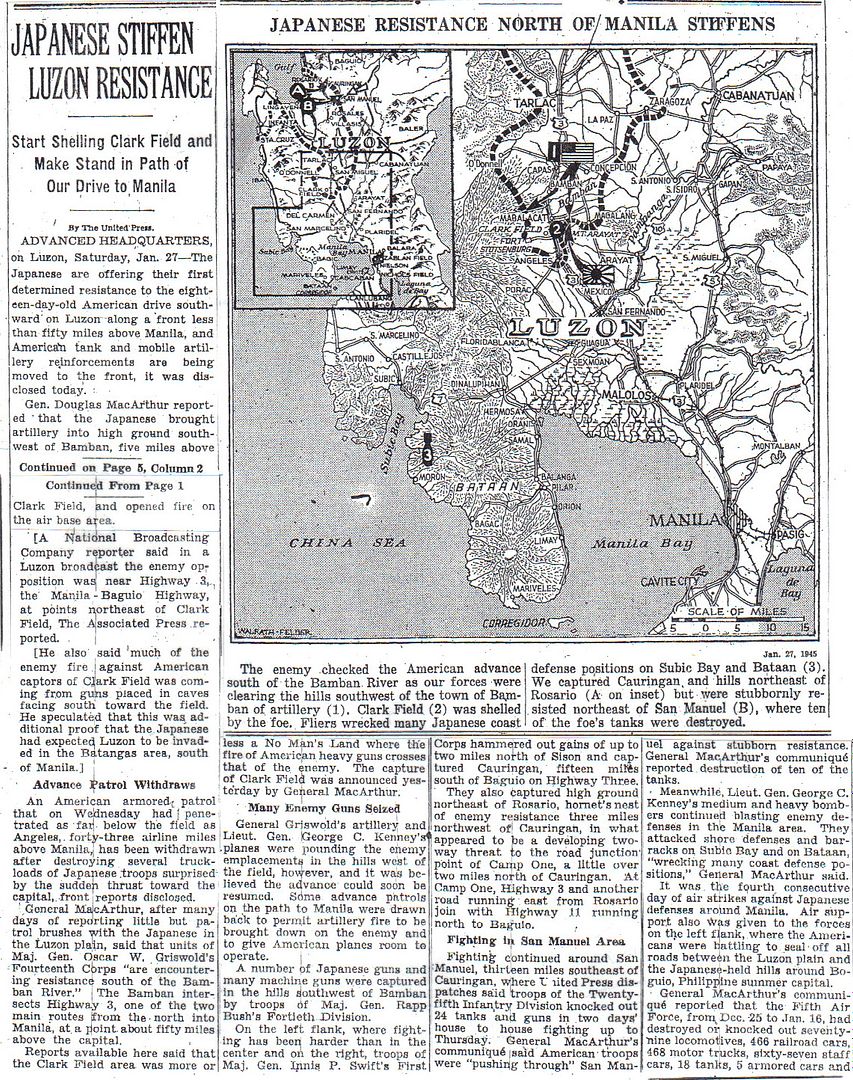
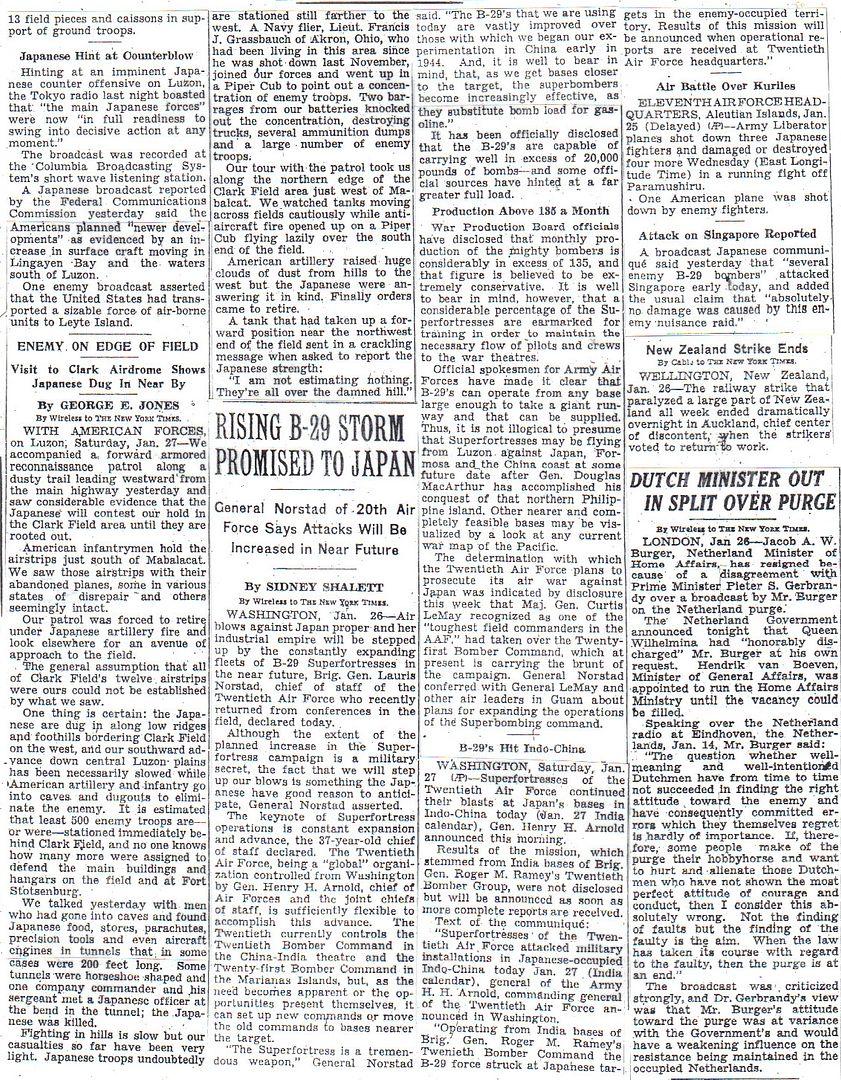
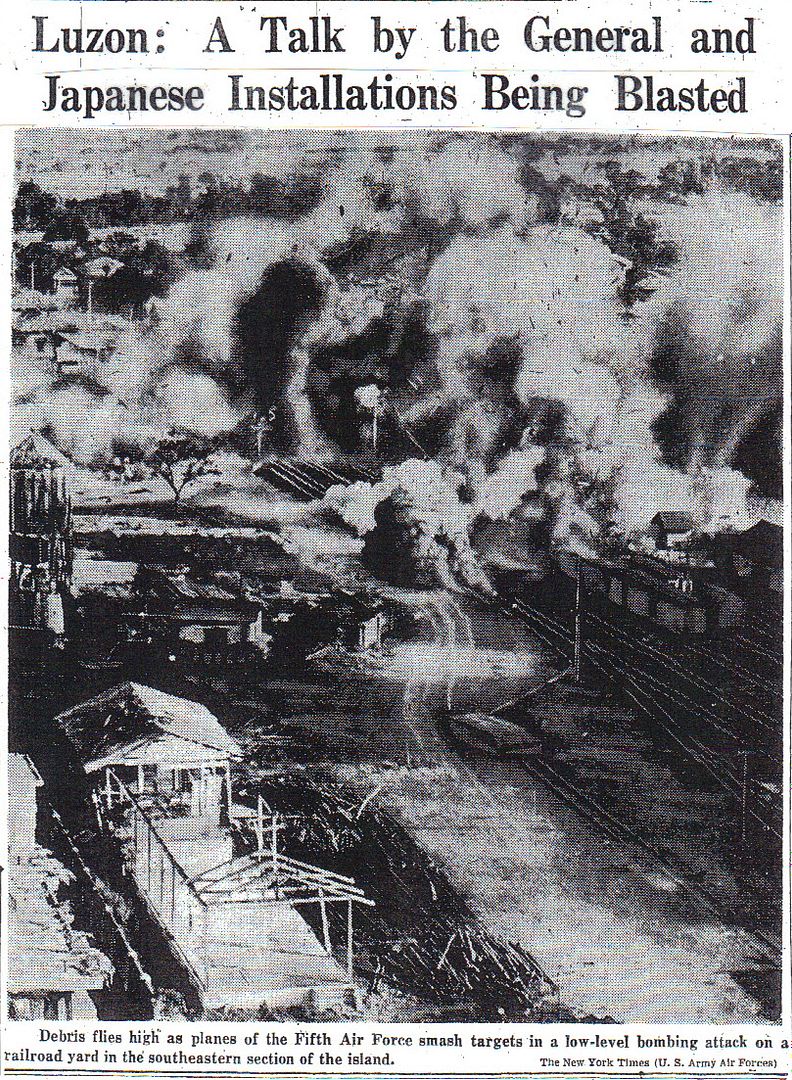
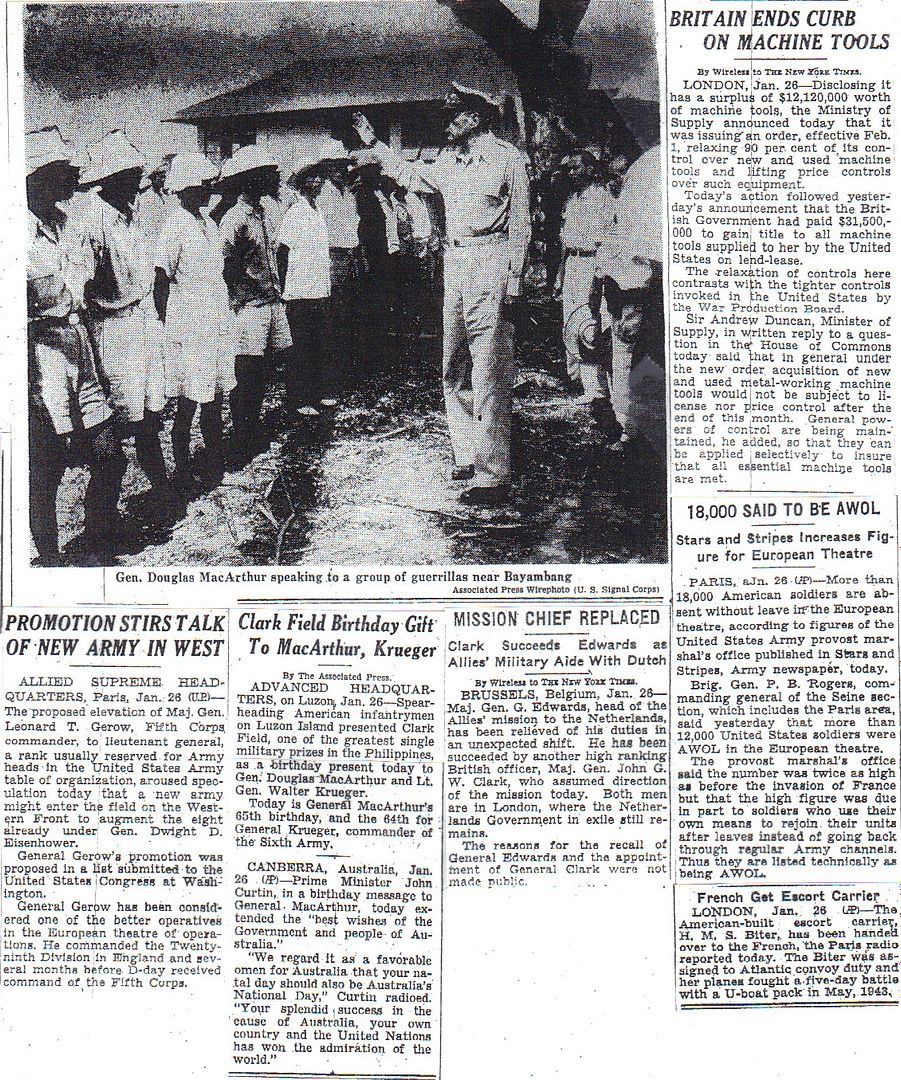
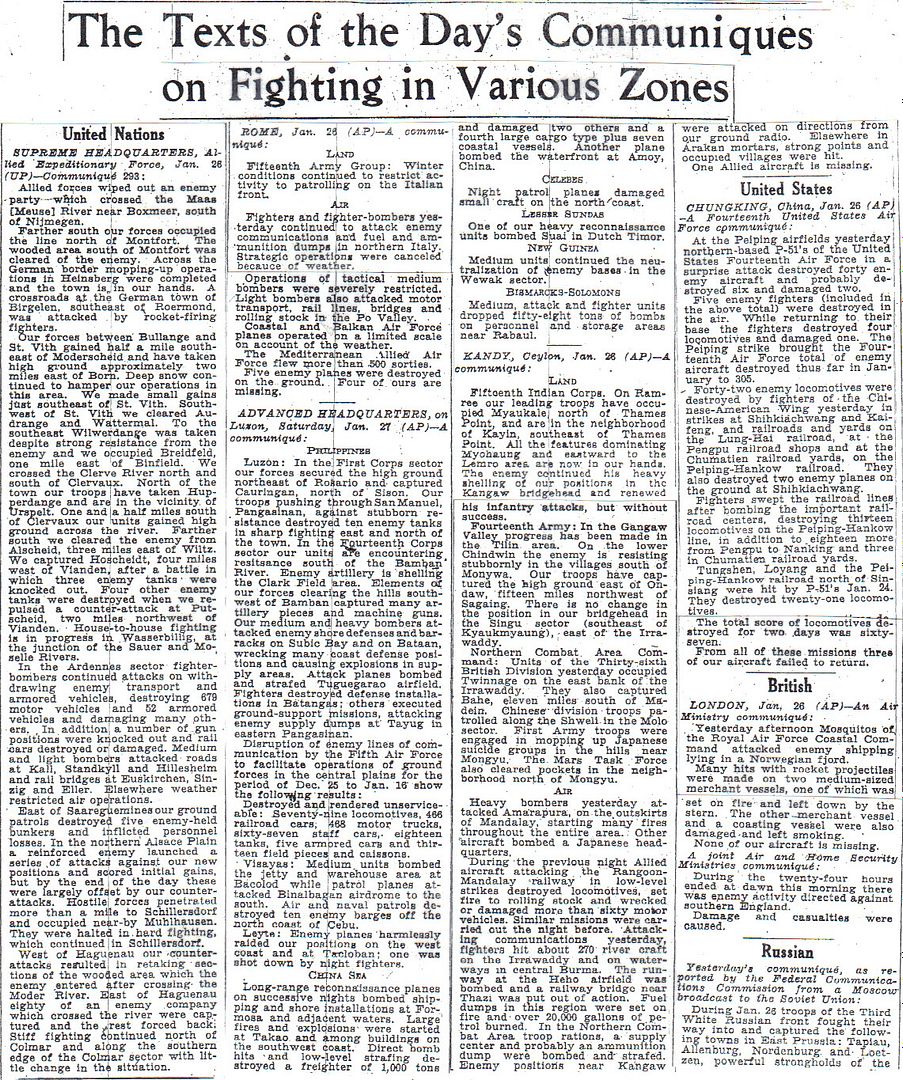
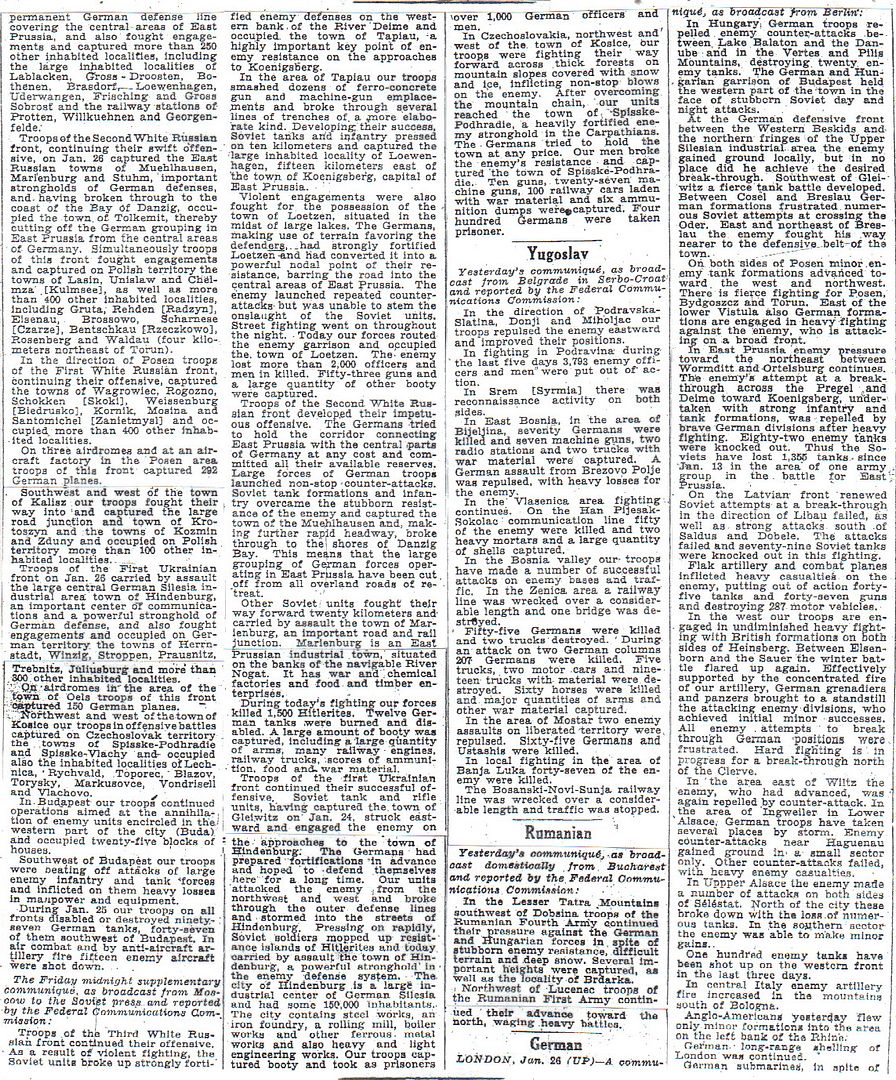
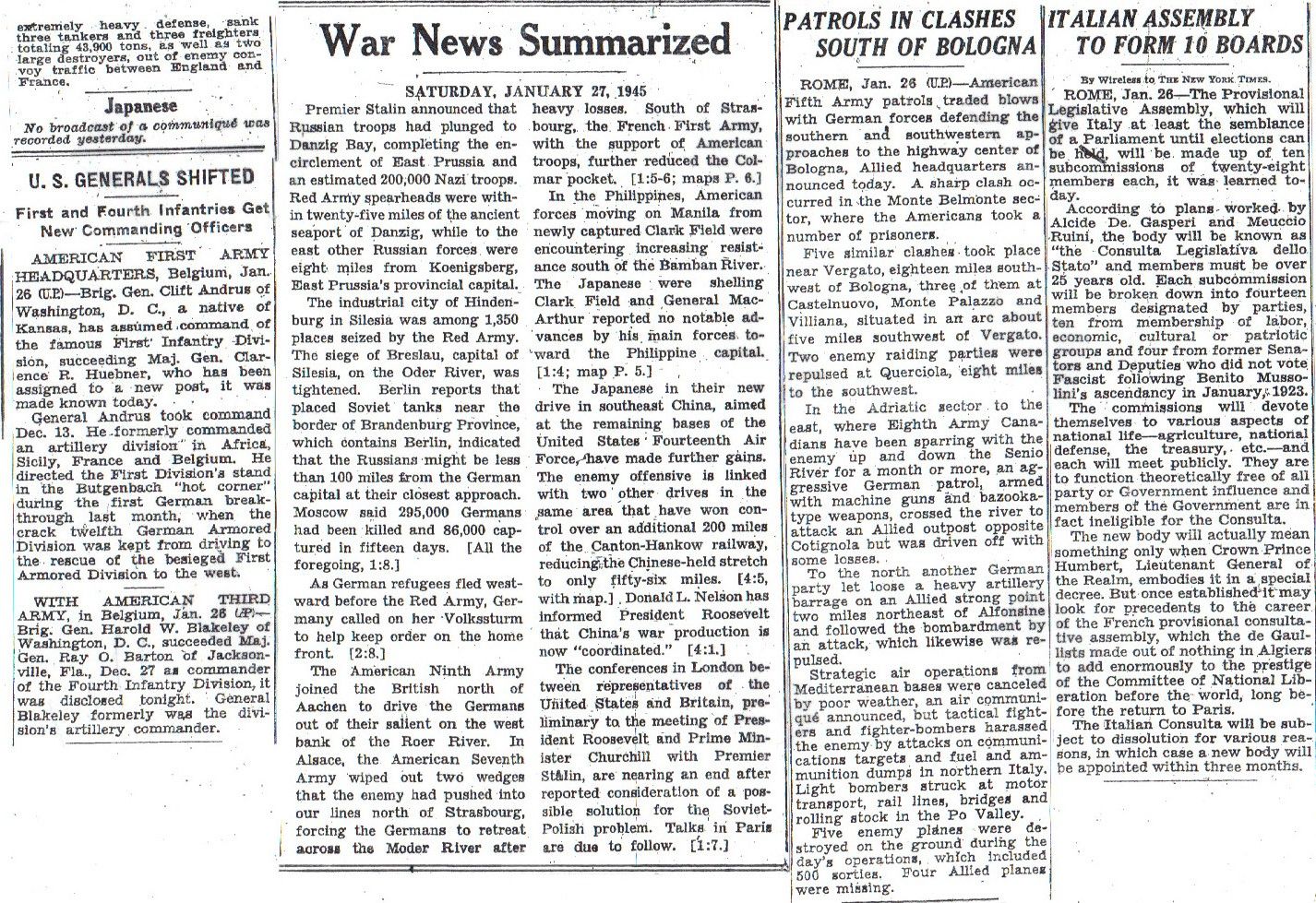
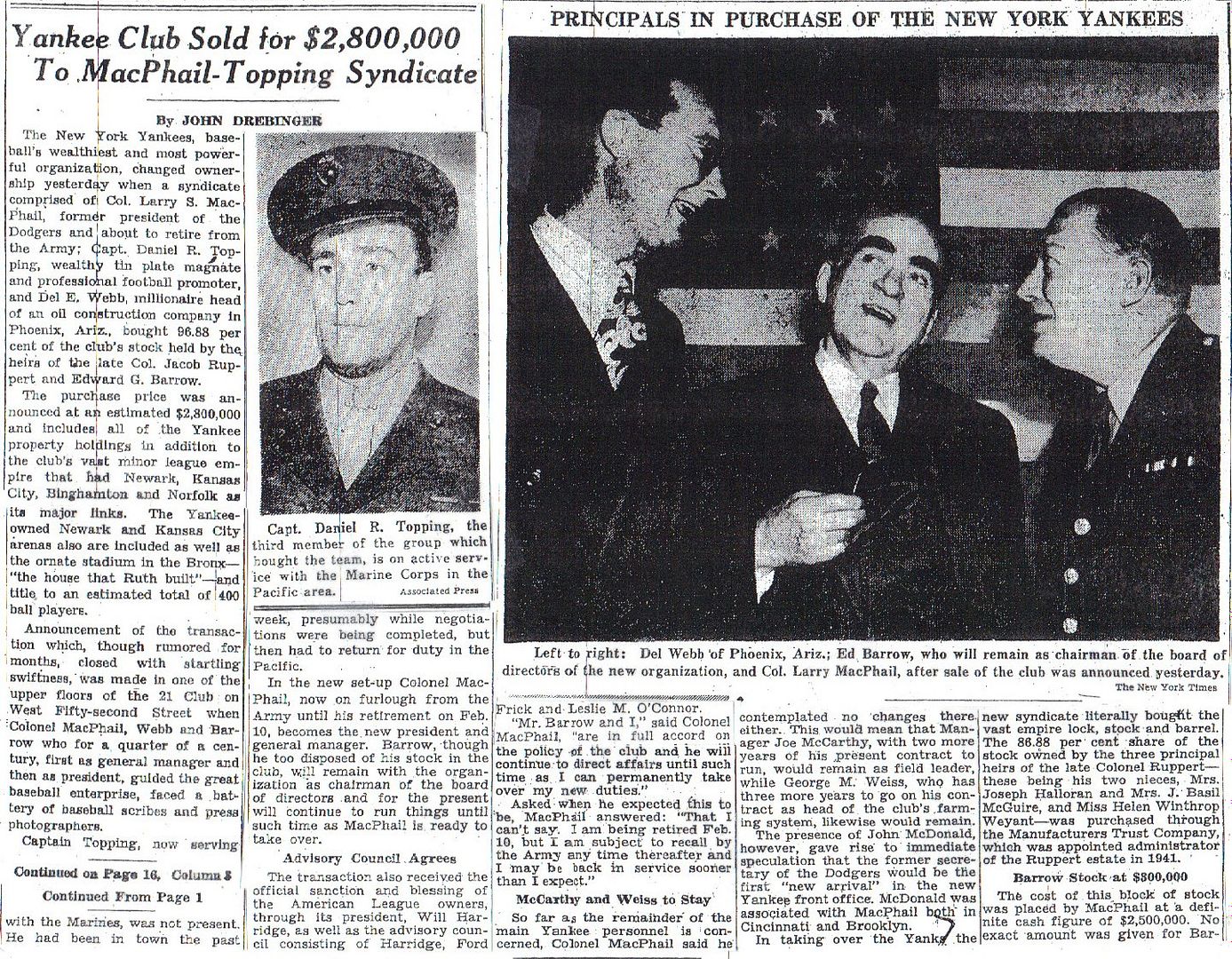
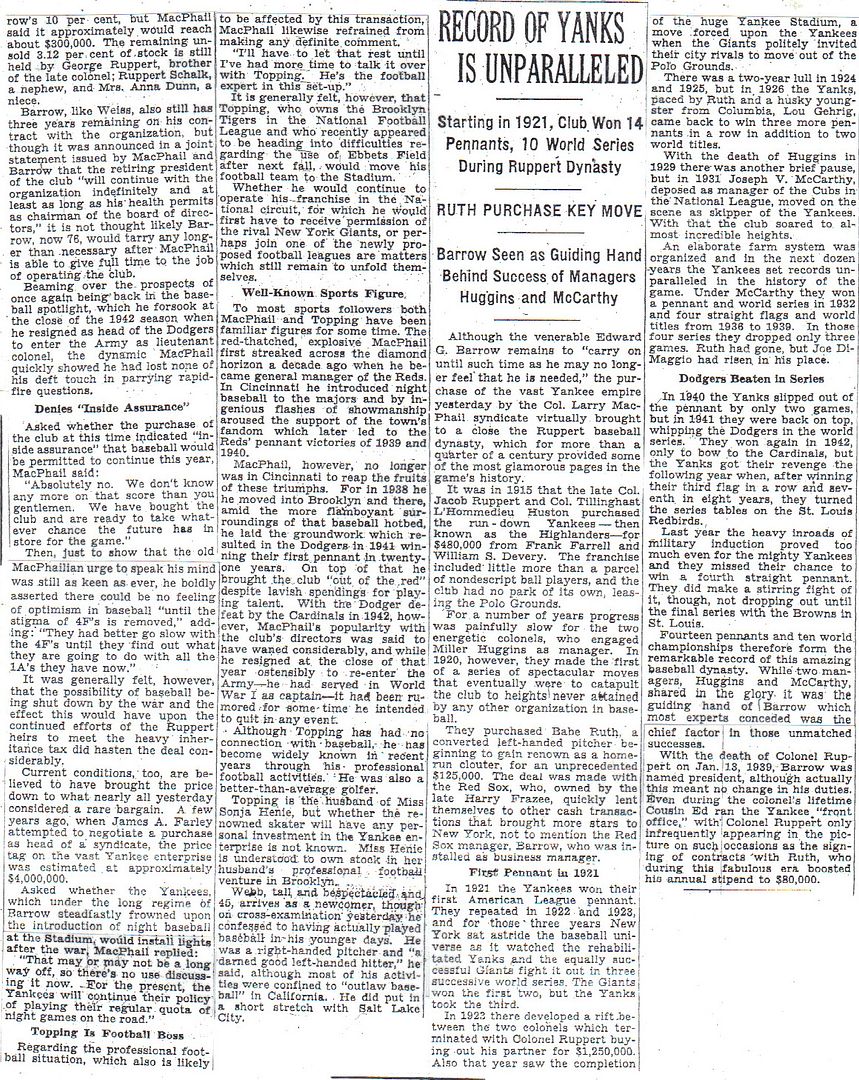
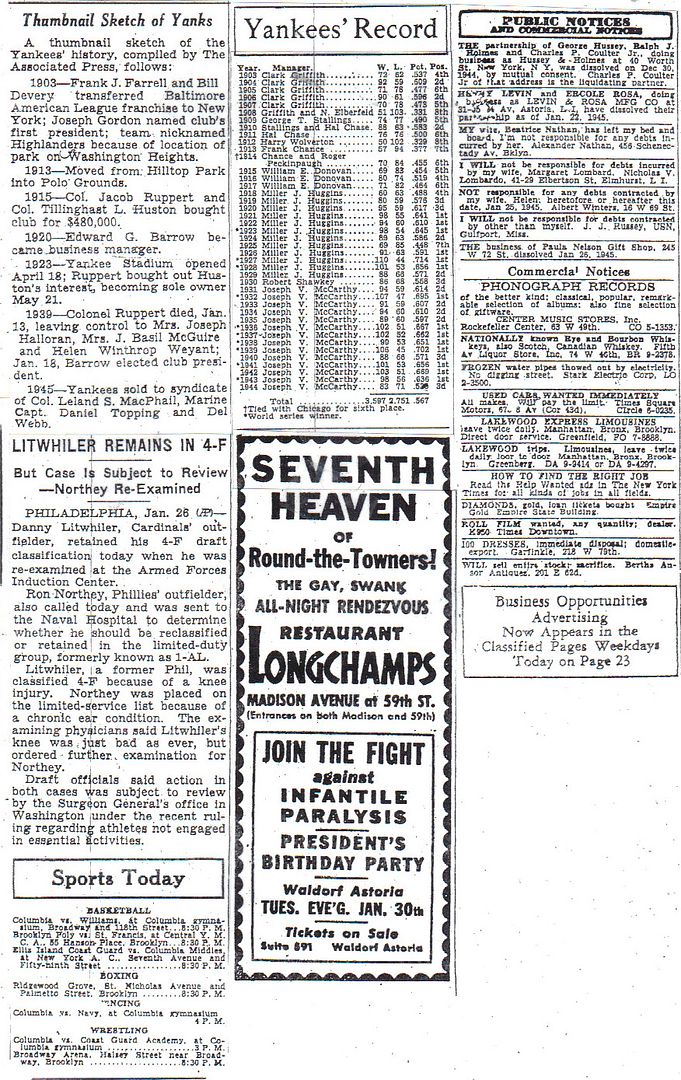
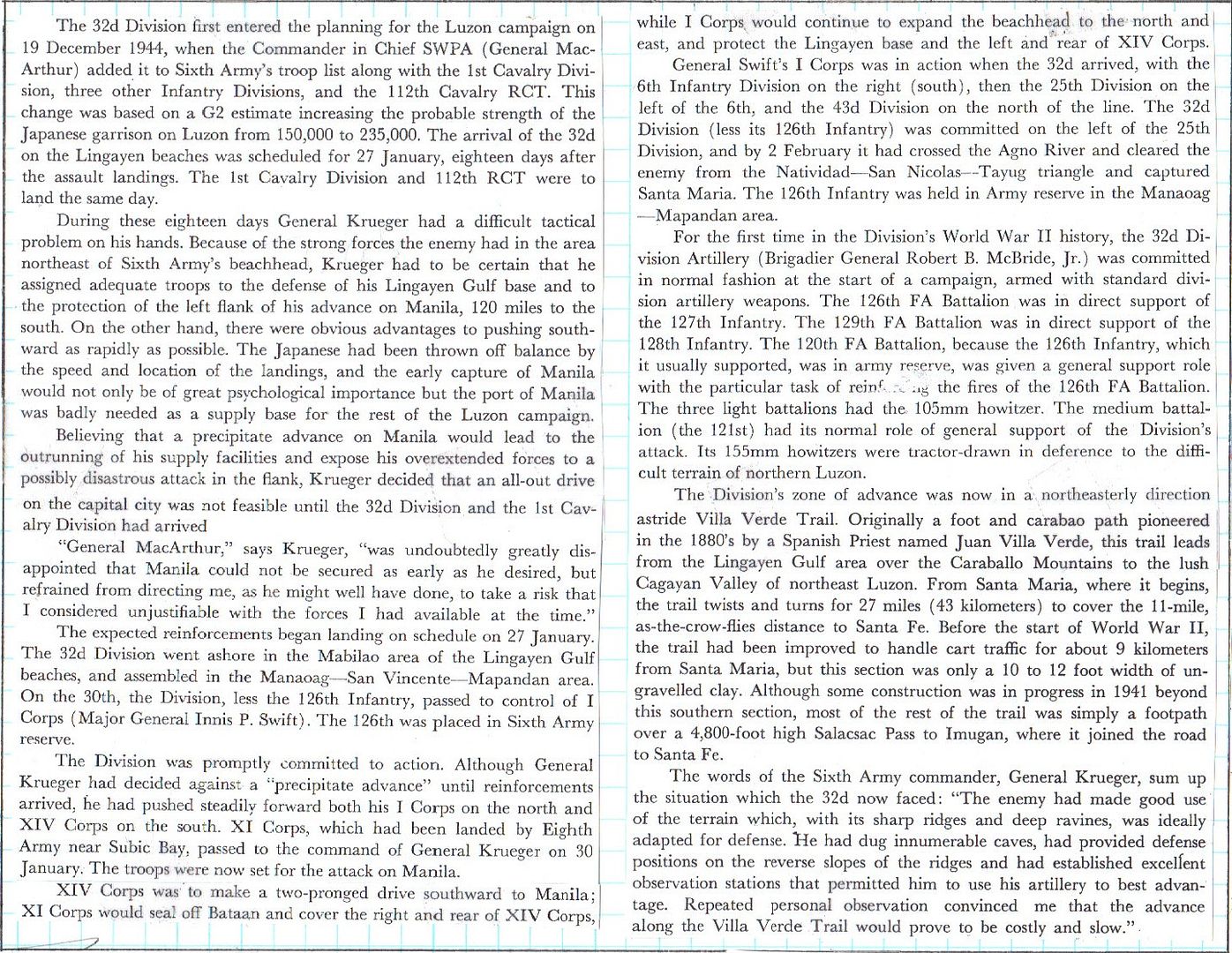
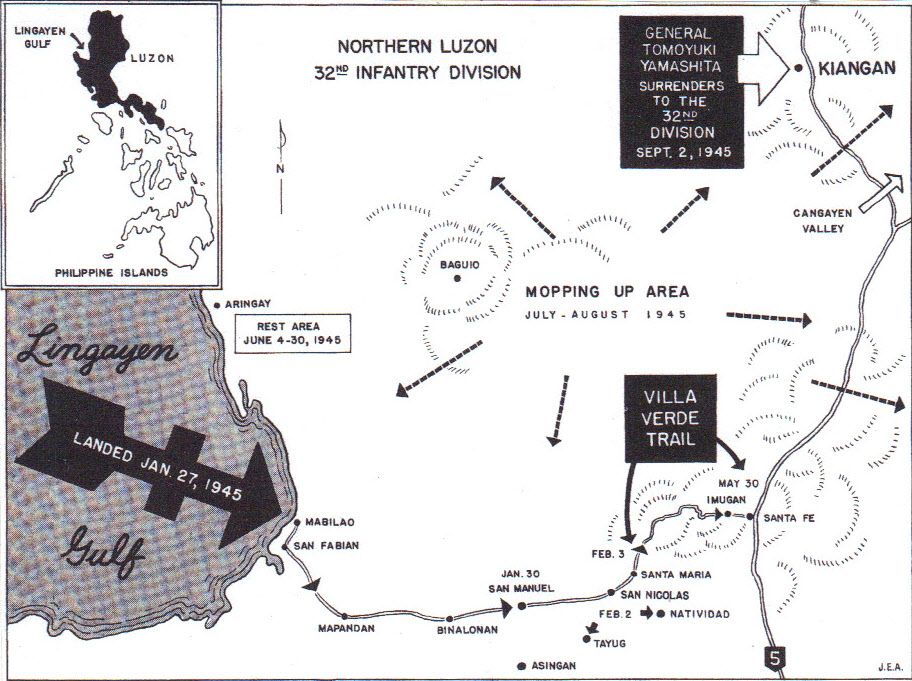
Major General H.W. Blakeley, USA, Ret., 32d Infantry Division in World War II
#1 - “Don’t Fence Me In” – Bing Crosby, with the Andrews Sisters
#2 - “Rum and Coca-Cola” - Andrews Sisters
#3 – “Accentuate the Positive” - Johnny Mercer, with Pied Pipers
#4 - “Don’t Fence Me In” - Sammy Kaye, with Billy Williams
#5 - “I Dream of You” – Tommy Dorsey, with Freddie Stewart
#6 – “Accentuate the Positive” – Artie Shaw, with Imogene Lynn
#7 - “Cocktails For Two” - Spike Jones, with Carl Grayson
#8 - “Into Each Life Some Rain Must Fall” - Ink Spots, with Ella Fitzgerald
#9 - “I Dream of You” - Frank Sinatra
#9 – “Accentuate the Positive” – Bing Crosby, with the Andrews Sisters
#10 – “Don’t Fence Me In” – Horace Heidt, with Gene Walsh
http://www.etherit.co.uk/month/0/27.htm
January 27th, 1945 (SATURDAY)
UNITED KINGDOM: U 1172 Sunk in St George´s Channel, in position 52.24N, 05.42W, by depth charges from the British frigates HMS Tyler, Keats and Bligh. 52 dead (all hands lost). (Alex Gordon)
Corvette HMCS Long Branch departed Londonderry for Halifax, Nova Scotia.
FRANCE: German gains in the Ardennes are eliminated.
Lyons: Charles Maurras, the leader of Action Français, is sentenced to life imprisonment for collaborating with the Nazis.
GERMANY: U-3028 is commissioned.
POLAND: KL (Konzentrationslager) Auschwitz liberated by Soviet troops. (Jason Leech)
Auschwitz-Birkenau: At midday, the four young Soviet cavalrymen, guns at the ready, came cautiously down the road that surrounded the camp. Looking through the barbed wire, they saw living skeletons moving slowly in a landscape of corpses sprawled in the snow, punctuated by broken-down and burnt huts. The Red Army had stumbled upon the Nazis’ biggest extermination camp.
As the booming Russian artillery came nearer, the Nazis attempted to conceal the traces of their hideous mass murder. They have burnt most of the camp’s carefully maintained records. Nine days ago they evacuated the 20,000 prisoners with the most chance of survival. Those who were too weak to walk out of the camp were shot dead. The rest have been dispersed to other camps further west. Anyone falling behind on the long march to their new destination was shot and thrown into a ditch.
Meanwhile the SS blew up the crematoria and gas chambers, and set fire to the clothing stores, destroying 29 of the camp’s 35 warehouses. In the remainder, the Russians have found huge piles of suits, dresses, children’s clothing, shoes, carpets, shaving brushes, spectacles and false teeth. Enormous numbers of suitcases bear hotel labels from all over Europe; trade marks on clothing show that the victims came from countries as far apart as Hungary and the Netherlands.
The Germans left only a few hundred inmates behind in the camp’s hospital block, most of them sick with diptheria, scarlet fever or typhus. In the last few days they have led a twilight existence roaming the unguarded camp, a ragged hollow-eyed, feverish horde, rifling the deserted and burnt huts for fuel and food. They have peered out through the fog at the Wehrmacht tanks and lorries retreating around them, and tentatively breached the wire to gather potatoes. Now, they regard the young Red Army troops with a jaundiced stare: can the nightmare really be over? Or is there more to come?
(From the Memoirs of Yakov Vinnichenko in the Guardian, Tuesday January 25, 2005)
At about 4am on January 27 we approached Oswiecim (Auschwitz). It is a small town on the Sola river. We didn’t even know there was a concentration camp there.
The Germans had far better weapons than us, and their rations were excellent, not like the gruel we had. Sometimes we didn’t even get that and went hungry for days. The Germans also had warm clothing, but we looked like riffraff by 1945: our clothes were threadbare, and we had no decent boots or blankets. It was mild for January. There was no snow, which we needed to melt in our pots to get water.
We won that war with our bodies. We would lose seven of our men for each German. It was tough in Auschwitz, too. The Germans deployed artillery and submachine guns outside the camp. They shot at us from the watchtowers and barracks. The fight raged for about five hours, and we lost many men. Then they pulled back.
When we entered the camp, we gasped: barbed wire everywhere, everyone in striped clothes and caps. The prisoners could barely walk: they looked like shadows or ghosts, they were so skinny. Some could not even move, others were supported by friends. They tried to talk to us, but we could not understand them: there were people from different countries, including many Jews from France, Poland and even Palestine. At the time of our assault there were 7-10,000 people in the camp - I learned after the war that the Germans had earlier shipped hundreds of thousands of prisoners to Germany and continued to use them for forced labour. But those left behind were barely alive.
At first, when they saw us, they could not believe they were free. But when they understood, some began to laugh, others broke down crying. Many tried to kiss us, but they looked so horrible that we kept away so as not to catch some bug. Many asked for food, but we didn’t have any. Our support units arrived the next day and got busy with the prisoners, feeding and washing them. But we only stayed for a couple of hours. It was a horrible scene. We went into a filthy women’s barrack, with bunks in tiers and bloodstains on some of them.
The Germans had not expected everything would move so fast: we carried out the operation very quickly. They hadn’t had time to blow up anything or plant mines. There was a huge construction site next to the camp: prisoners were building a chemicals plant. There were not just camp inmates working there, but also tens of thousands of civilians shipped from the USSR.
The grim barracks stood in rows and, from a distance, looked like a factory - and it was a real factory of death. I saw a great deal in the war, but nothing so horrible or awesome as that camp. The experience gave us a new energy and determination to put an end to the abomination of nazism. Our men did not spare their lives - we knew our cause was just. In a few days we moved on to the west, and I was again gravely wounded, now on German territory, at a place called Lonau.
(Jim Davies)
EASTERN FRONT: The Soviet Army reaches Memel in Lithuania.
Marshal Konev has virtually severed the vital industrial area of Upper Silesia from the rest of the Reich. At the same time, according to German reports, Marshal Zhukov has outflanked Poznan and his forward patrols have reached Bentschen, only 100 miles from Berlin. In the north Marshal Rokossovsky has burst through to the Baltic and cut off East Prussia. About two-thirds of the province has now been captured. Konigsberg, to the north, has been practically cut off and Danzig is threatened. Rokossovsky had to move fast to beat off a desperate final German counter-attack to try to break out to the Vistula.
Meanwhile in Berlin the Volkssturm, consisting largely of old men and schoolboys, is to fight on. The streets are being cleared of refugees to make way for reinforcements. German radio is preparing the people for disaster: “This is our last chance. Victory or destruction is the slogan guiding the fate of the German people.”
BURMA: The Ledo Road from Burma to China is finally opened.
ULITHI: USAAF General Curtis LeMay meets with Admirals Spruance and Mitscher for a conference to discuss the projected American invasion of Iwo Jima.
LeMay secured the approval of Nimitz and Harmon for the following supporting operations: 1) picketboat searches on D minus 8 and D minus 5; 2) weather-strike missions by three B-29s operating individually against Tokyo on three nights beginning D minus 4/3 and against Nagoya on three nights beginning D Plus 3/4; 3) major strikes against a primary target in the Tokyo area on D Plus 4; and 4) a diversionary raid against Nagoya on D minus 2.”
CANADA: Corvette HMCS Woodstock paid off Esquimalt for conversion to loop layer.
U.S.A.: Liberty magazine cover has a portrait of Captain Thomas H. “Tommy” Wakeman as the face of Army Air Force.
Starting today 40 Consolidated B-32A-5, -10 and -15 aircraft are delivered as unarmed TB-32-CF crew trainers.
Commissioning of USS Higbee, first US Navy ship named after a USN woman.
Destroyers USS Meredith and O’Hare laid down.
Destroyer escort USS Hanna commissioned.
Destroyer USS Stormes commissioned.
When I read local histories of this area in upper Bavaria, I read of locations used to house refugees from the East, the lucky few that managed to arrive here after incredible deprivations, brutality and mass rape. This might actually be a time in which the New York Times could truthfully assert, "women and children suffer most."

Nothing that the Germans did not do in the Soviet Union. This would not have happened to the German people if they had not supported a total war against all of Europe.
We must be willing to inflict casualties without regard to fastidiousness over collateral damage. We must take the attitude that we took in World War II that Germans and Japanese dying in their tens of thousands in bombing raids were paying the price for their folly in putting those regimes in place.
However, there is a huge moral difference between inflicting civilian casualties out of revenge and inflicting those casualties as collateral costs of victory. And it is quite another thing to say that one wrong justifies another. Finally, we have spent virtually every day since 1945 telling the world how heinous the Germans behaved while we turn a blind eye to the atrocities committed by leftists.
When we unequally lose these propaganda battles, we tend to lose the battle about who writes history and therefore we lose current events.

The “ethnic cleansing” was also something the Soviets were familiar with doing to their own peoples. The Crimean Tatars, Volga Germans, Kalmyks and Chechens were all deported to Central Asia and Siberia about this time.
However, as much cruelty and suffering was exacted upon the German civil populations in the East, there was a certain cold logic to Stalin’s policy of forced deportation of ethnic populations. The Second World War arose in part from the existence of large ethnic populations outside of the borders of their own nation-state. It was particularly the Germans, but the mixed Hungarian-Romanian population in Transylvania was an issue as well. Stalin decided on a brutal, but effective means of settling this issue once and for all. The Germans were kicked out of lands to become Polish, and the Romanians, for having won the race to submit to Moscow, got the Hungarians kicked out of Transylvania.
Echoes of these issues linger today. The Chechen deportation in particular still gives the Russians certain unresolved issues. And much of Putin’s regional policies are driven by the desire to bring the ethnic Russians, scattered throughout the former Soviet Empire, back within a Russian state. His policies do not differ greatly from Hitler’s regarding the Anschluss or the Sudetenland.
Had the Times Sports page taken comments, you would probably have read several like this:
These new owners of the Yankees are going to have a tough time keeping the tradition going, what with all those World Series Championships won by Ruth and Gehrig. Those guys are gone now, so where will they find players of that caliber?
To be historically accurate you should say “Atrocities committed by the Soviets.” How many atrocities have the leftist in Norway, Sweden or Denmark committed since 1945.
You should call for what is was the Communist Party of the USSR. That is historically accurate, not right leaning propaganda.
BBC on this day
http://news.bbc.co.uk/onthisday/hi/dates/stories/january/27/newsid_3520000/3520986.stm
1945: Auschwitz death camp liberated
The Red Army has liberated the Nazis’ biggest concentration camp at Auschwitz in south-western Poland.
According to reports, hundreds of thousands of Polish people, as well as Jews from a number of other European countries, have been held prisoner there in appalling conditions and many have been killed in the gas chambers.
Few details have emerged of the capture of Auschwitz, which has gained a reputation as the most notorious of the Nazi death camps.
Some reports say the German guards were given orders several days ago to destroy the crematoria and gas chambers. Tens of thousands of prisoners - those who were able to walk - have been moved out of the prison and forced to march to other camps in Germany.
“Little did we know that we had arrived at a place, the name of which would become as well known and remembered as any battle in the war.” — People’s War memories
Details of what went on at the camp have been released previously by the Polish Government in exile in London and from prisoners who have escaped.
In July 1944 details were revealed of more than 400,000 Hungarian Jews who were sent to Poland many of whom ended up in Auschwitz. They were loaded onto trains and taken to the camp where many were put to death in the gas chambers.
Before they went they were told they were being exchanged in Poland for prisoners of war and made to write cheerful letters to relatives at home telling them what was happening.
According to the Polish Ministry of Information, the gas chambers are capable of killing 6,000 people a day.
Another report from Poland told of mass arrests in the village of Garbatka near Radom in the early hours of one morning in August 1942. Workmen were accused of plotting to blow up a local factory. Twenty were executed on the spot, the rest were sent to Auschwitz.
Since its establishment in 1940, only a handful of prisoners have escaped to tell of the full horror of the camp.
In October last year, a group of Polish prisoners mounted an attack on their German guards. The Germans reportedly machine-gunned the barracks killing 200 Polish prisoners. The Poles succeeded in killing six of their executioners.
When the Red Army arrived at the camp they found only a few thousand prisoners remaining. They had been too sick to leave.
The capture of Auschwitz comes as the Red Army has made important advances on three fronts: in East Prussia to the north, in western Poland as well as Silesia in eastern Germany. Fighting is continuing around the historic Polish western city of Poznan.
The Polish capital, Warsaw, was liberated a week ago after five-and-a-half years of German occupation.
In Context
Although few details of the liberation of Auschwitz were given in the British press at the time, it had gained a reputation as the worst of the German concentration camps.
On 8 May 1945 a State commission compiled by the Soviets with advice from Polish, French and Czechoslovak experts revealed the full horror of conditions at the camp.
Nearly 3,000 survivors of various nationalities were questioned and on the basis of their evidence the report estimated 4,000,000 people had perished there between 1941 and early 1945.
The dead included citizens from the Soviet Union, Poland, France, Belgium, Holland, Czechoslovakia, Yugoslavia, Hungary, Italy and Greece.
The commission, which had previously investigated conditions at Majdanek, Treblinka and other camps, described Auschwitz as the worst in its experience.
It found evidence of experiments carried out on humans “of a revolting character”.
According to the evidence, the commission said the Germans had moved out up to 60,000 inmates - those still fit enough to walk - when they retreated. The few thousand who were left behind were freed by the Russians.
They also found seven tons of women’s hair, human teeth, from which gold fillings had been extracted and tens of thousands of children’s outfits.
The final death toll was later revised downwards, by the Auschwitz Museum, to between 1 and 1.5 million, including almost 1m Jews.
Apparently some like Patton couldn't understand that either.
To me the difference between the Nazis and the Bolsheviks is the difference between getting hit by a bus or a train. Either way, you’re hurting.
I can concede your point partially, that in addition to leftists who commit atrocities, there are leftists who merely enable the mass murderers to gain power, naive of their intentions. There were those in the Kerensky faction that were overjoyed that now that the Communists were in power, they would now be able to abolish capital punishment in the new Soviet Union!
However, you seem to have forgotten about China, Cambodia, North Korea, Cuba, the African Marxist regimes, East Germany, Vietnam, basically the majority of leftist regimes that were murderous nightmares.
Keep those records in safe places as there are organizations out there who more and more try to question and would like to delete any record of the Holocaust.
It appears “The Battle of the Bulge” is over. Is there a particular date when it was considered over?
Disclaimer: Opinions posted on Free Republic are those of the individual posters and do not necessarily represent the opinion of Free Republic or its management. All materials posted herein are protected by copyright law and the exemption for fair use of copyrighted works.